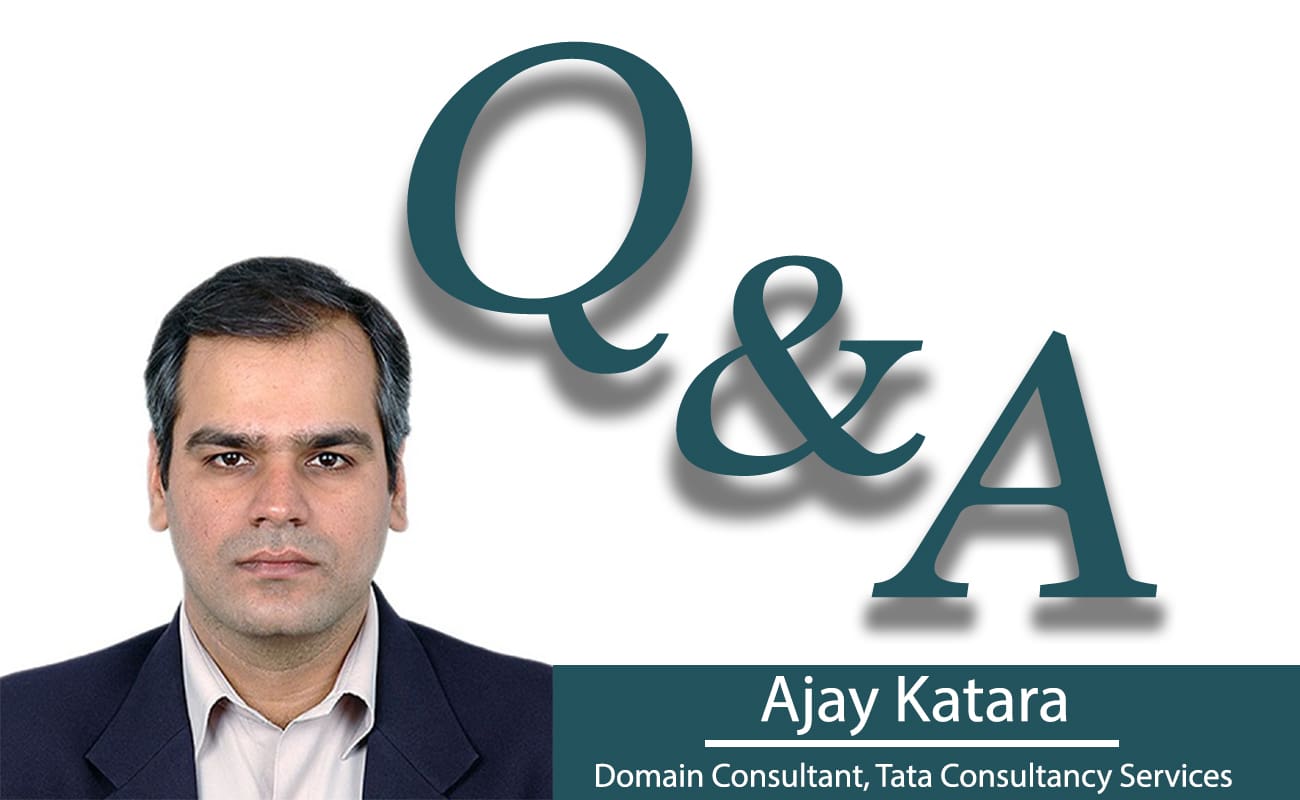Q&A with Ajay Katara, Domain Consultant with Tata Consultancy Services
Today we share an interview between CCI’s Publisher, Maurice Gilbert, and Ajay Katara of Tata Consultancy Services. Ajay shares his background; insights on risk and compliance; and thoughts on how technological advancements are changing the calculus for risk and compliance practitioners.
Maurice Gilbert: How did you get started on a career in compliance?
Ajay Katara: My career in risk and compliance started with an engagement in Basel II for a banking client. As this progressed and my interest levels grew, I started venturing into different areas of risk and compliance like Solvency II, market risk, AML, KYC, stress testing, etc.
MG: Who helped shape your views?
AK: I would say hands-on experience of working as a domain consultant in risk and compliance projects for various clients helped me get a big picture of the risk and compliance blueprint. This has also made it easy for me to connect overlaps between regulations and also identify potential impacts of new regulations on people, processes and systems in banks. Also my keen interest in understanding the latest digital technologies in the areas of artificial intelligence and automation has helped shape my views on their applicability in the risk and compliance area.
MG: How do you stay current on ethics and compliance issues?
AK: There are a host of channels I tap into to keep abreast of the latest happenings in risk and compliance area, including:
- Analyst Interactions – Constant interactions with research analysts from firms like Celent, Everest and Forester
- External Forums – Active participation in discussions on compliance groups on portals like LinkedIn
- Risk Websites – Active subscription to leading risk and compliance websites
- Editorials – Publishing articles and sharing my point of view on various forums and websites
MG: What are some of the significant issues facing CCOs, risk managers, etc.?
AK: As we are all aware in the wake of the 2008 financial crisis, there have been heavy regulatory pressures on risk and compliance functions. The rigor still continues in the area, and CCOs and risk managers continue to grapple with issues like operational agility to comply with newer and enhanced regulations; ensuring adequate data management controls to check data integrity and quality; vendor risk management; and managing cybersecurity risk.
MG: What changes do you see within your clients’ environments?
AK: Many banks and financial institutions have invested significantly in technology over the last decade, be it on big data technologies, third-party reporting platforms, risk calculation engines, etc. Banks are now looking at opportunities to rationalize, streamline and improve efficiencies and are focusing on cost optimization and process improvements by using digital levers like artificial intelligence and automation.
MG: How is the role of RPA shaping up in the risk and compliance function?
AK: RPA, or robotics process automation, refers to an automation technology that helps to automate activities that are standard, repetitive and manual in nature. RPA is slowly becoming one of the digital levers many banks are adopting to bring in cost efficiencies, process optimization and better controls on the end-user computing process. Though initially the role of RPA was automating simpler tasks, it is slowly becoming integrated with other cognitive solutions, like machine learning, chat bots, etc. to drive in complex automations.
MG: What are some of the key areas of focus for RPA or use cases in the compliance function?
AK: Most of the key RPA use cases can be found in the control, monitoring and the reporting functions of the compliance value chain. For banks, use cases are found in predominantly manual tasks, such as in KYC onboarding, AML alert investigation and compliance reporting. These are some of the use cases that are coming out as strong RPA candidates in the compliance area.
MG: What are some of the key challenges faced during RPA implementations?
AK: One of the most important challenges faced by banks in adopting RPA is the assessment of the right RPA candidates for automation. Many banks have a lot of manual processes and end-user computing applications they are looking to automate. However, not all processes can be automated, and banks need to establish proper RPA standards and governance frameworks to automate use cases.
MG: How does your company help its clients in RPA assessments and implementations?
AK: TCS (Tata Consultancy Services) has a dedicated Risk and Compliance Center of Excellence, which consists of domain experts that help identify and assess the right RPA candidates. There is also a Technology RPA Center of Excellence, which has alliances with leading RPA solutions and also drives RPA-based implementations. There are also proprietary, RPA solution accelerators and frameworks developed in-house that hasten the process of RPA adoption.
MG: What new service offerings do you have in the queue for risk and compliance?
AJ: There a whole lot of exciting offerings lined up in the coming year. The following are broader areas being targeted through these service offerings in the area of risk and compliance:
- Cognitive RPA assessment solution
- Automated process capture for RPA implementations
- More cognitive developments leveraging machine learning and NLP in risk and compliance areas for strategic areas that involve complex decisions.
- Service offerings for upcoming regulations in risk and compliance.
 Ajay Katara is a Domain Consultant with the Risk Management practice of the Banking and Financial Services (BFS) business unit at Tata Consultancy Services (TCS). He currently leads the BFS Risk Practice’s portfolio on Regulations and Robotics Process Automation. He has extensive experience of more than 13 years in Consulting & Solution design space cutting across CCAR Consulting, AML, Basel II implementation and credit risk, and has worked with several financial enterprises across geographies.
Ajay Katara is a Domain Consultant with the Risk Management practice of the Banking and Financial Services (BFS) business unit at Tata Consultancy Services (TCS). He currently leads the BFS Risk Practice’s portfolio on Regulations and Robotics Process Automation. He has extensive experience of more than 13 years in Consulting & Solution design space cutting across CCAR Consulting, AML, Basel II implementation and credit risk, and has worked with several financial enterprises across geographies.
He has significantly contributed to the conceptualization of strategic offerings in the risk management space and has been instrumental in successfully driving various consulting engagements. He has also authored many editorials, details of which can be found in his LinkedIn profile.











